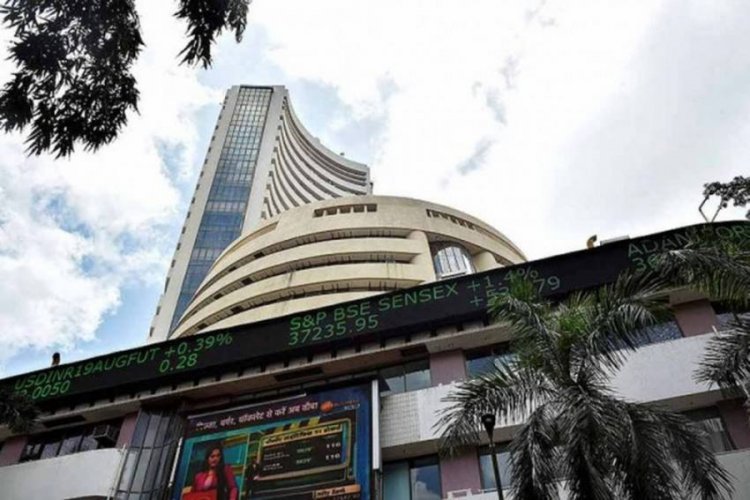Investing money in an atmosphere of fear will earn well, Sensex can reach 70,000 this year
Learn from experts the condition of the market in 2023: Investing money in an atmosphere of fear will earn well, Sensex can reach 70,000 this year

The new year 2023 has started. Sensex and Nifty set new records last year amid several global headwinds, including the Russia-Ukraine war. While most of the global markets recorded a decline of 10 to 20%, the Indian market was up by about 2%.
Now how can the Indian market be in the year 2023? Where and when should investors put the money? What will be the impact of the Russia-Ukraine war and the spread of Corona infection in China on the market?
Bhavesh Jain, fund manager, of financial services company Edelweiss, said, “The market has to be seen in two parts. If seen globally, the markets have corrected by 20-25%. On the other hand, the Indian market is close to a lifetime high. Our valuation is expensive in the global context.
In the Indian context, the market has been trading at a PE of 20 in the last 10 years. It is currently trading at a multiple of 21. That's why 20 and 21 cannot be called more expensive. Especially at a time when there is a lot of uncertainty outside and we have stability here.
Anuj Gupta, Vice President (Commodity and Currency), IIFL Securities, said, “The year 2023 can be very volatile but some positive news will also support the market. We are hoping that the Russia-Ukraine war may end this year.
Energy prices may also come down. The global economy can get a boost due to the end of Kovid in China. According to Gupta, the coming year will again be a good year for the Indian market. RBI as well as US Fed policies will play an important role in market movements.
The retail inflation rate in India is at 5.88% and is expected to come down further. Crude oil prices are coming down which is positive for India. In 2023, we expect good yields of rabi and Kharif crops such as wheat, rice, sugarcane, ramseed, soybean, pulses and palm. An increase in FPI investment can also be expected.
For this year we are expecting Nifty and Sensex to outperform. Nifty may test 22000 to 23000 levels and Sensex may go 68000 to 70000. Positive economic activity, low inflation, political stability and improvement in global markets will be key factors for recovery.
Bhavesh Jain said, 'Many people try to time the market. Even in 2020, when the lockdown was announced on March 23, a lower circuit was set in the market. But we will see that the market bottom was formed on the same day the lockdown was announced. The closing of Nifty on March 23 was 7600; by the end of the year, Nifty came to around 15000.
That is, when there are many negative events in front of you, people are scared, then putting money at that time will make big money. People lose more money waiting for correction than they do not lose in correction. That's why money should be invested whenever there is an atmosphere of fear. On the other hand, Anuj Gupta has selected some stocks for the year 2023, which can give good returns to investors.
Bhavesh Jain said, “Retail investors do not need to put lump sum money in the market. SIP is the best way to invest money. You can double-triple the SIP whenever the market declines. At the same time, he said that that much money should be put in the equity market which you do not have to touch for the next 5 years.
You would think that you will leave after making money in 1-2 years, then it is possible that the market may not be in your favour for a year or two, but there are fewer chances of the market not being in your favour for 5 years. In the long run, you will see actual wealth creation. The probability of the market being negative in one year is high, but the probability of being negative in 5 years is only 5-7%.
According to Jain, Balanced Advantage Fund is best for retail investors. Fund managers don't take decisions based on human emotion... It is formula and process driven. Depending on the market condition, the fund manager decides what percentage of the money should be invested in equity. The procedure has always given more returns than emotion. The returns of balanced funds and equity are almost the same.
For Latest News update Subscribe to Sangri Today's Broadcast channels on Google News | Telegram | WhatsApp





































.jpeg)
































































































